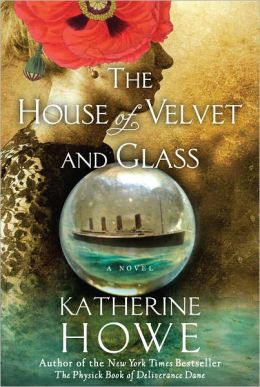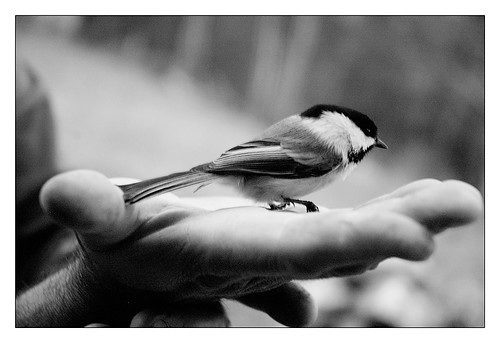I've been batting around a notion for a while that seems rather, well, obvious. I frequent the library often, and try to read a great variety of works both within "my" genre and outside of it, and yet I find myself in the habit of not sitting down and putting into words what I did (or didn't) take away from it. I have no excuse. It is important to be able to articulate why I love or loathe a certain
book - not just as a writer but as a thoughtful reader. Besides, it's just good practice. We opinions, fellow readers! We need to voice them!
I'm not a literary critic. In fact, I think a great deal of us cringe at the word. The one class from which I had to withdraw in college was a Critical Theory class in which the lecturer's unforgiving attitude toward those of an writer's mindset gave me a nasty panic attack. So... I'm not a critic, just a reader and a writer looking at the story and what it said to me. I realize it doesn't have to be an article. It doesn't have to be a polished essay. It doesn't need to be more than say, 250-300 words. The length of those pesky query letters... and no doubt easier to write. Ahem, here goes.
The first book in this Micro-Review series is The House of Velvet and Glass by Katherine Howe. Published in the spring of 2012, it is the second novel Ms. Howe has presented to the world. The first was The Physick Book of Deliverance Dane, an intriguing novel spanning modern-day Harvard back to the Salem witch trials. I read The House of Velvet and Glass because Deliverance Dane struck such a nice balance between historical fiction, contemporary coastal Massachusetts and a hint of magic woven throughout. Her characters were genuine and driven to uncover the mysteries presented them. Her descriptions were vivid - I particularly liked her description of the dilapidated house to which the main character returns and the mushrooms growing at the foot of the stairs. The novel was warm with hints of good witches, a magic inheritance from mothers to daughters and long-lost diaries, an October story.
The House of Velvet and Glass also takes place in Boston - this time in 1915 after the Titanic disaster. As Deliverance Dane was a story about witches and magic, Velvet and Glass is about sinking ships, opium dens and crystal balls. I did not find it to be as "entrancing" as the jacket blurb says. The main character Sibyl Allston is a spinster at twenty-seven, still suffering from the rejection of a suitor long ago and the deaths of her mother and sister on the Titanic. Her brother has been expelled from Harvard for cavorting with an actress. Her father is an old grizzled seafarer with a blue parrot. Katherine Howe, it must be said is a consummate researcher. To read Velvet and Glass is to transport yourself into the textures and the trappings of medium parlors, Back Bay mansions and opium smoke. The surroundings are vivid... but perhaps too vivid because they tend to drown the characters out to types - they're good characters with some but not great depth.
I couldn't get close to the characters. Sibyl discovers that using a scrying glass in conjunction with opium use gives her powerful visions; her old flame - a psychologist - tries to protect her from it; her father battles his own addictions for similar reasons. Sibyl strikes me as being a little too naive, while also being stubborn, which is irritating. Her brother of course falls in love with a woman of indeterminate class. Other rich ladies are snobbish. It's 1915 and Sibyl doesn't know that the laudanum her father takes is an opiate and therefore addictive? And - no doubt because I've watched Downton Abbey - I saw the story line of the Titanic connecting to the Great War almost immediately. It was so predictable - although I cannot rule out the idea that this was somehow intentional - and the characters helpless to do much to change their fate... even if they can see the future. I expected different, more dynamic choices on Sibyl's part.
I wonder if this is an example of Second Novel Syndrome, my term. Having made a successful debut, the author is now under deadline for the second bestseller - continuing a brand of story. Perhaps there isn't as much freedom to create and explore in this new novel; publishers and editors want a working outline, a synopsis of a novel that is still in the infant stages. In order to meet deadline, the author must work to the outline. I'm not saying this is true of Ms. Howe's experience, as I'm not in a position to ask her, but it is the sense I gather: to produce something fresh and in the same vein as Deliverance Dane but on a schedule.
That said, The House of Velvet and Glass is a thoughtful and scholarly book. Katherine Howe has painted a vivid picture of 1915 Boston - showing us how the mediums (charlatans) turned their tables, what the scientific minds at Harvard thought about visions of the future, and the inheritance of addiction. There are beautiful moments and graces, fiery kisses and apparitions, a dance in the ballroom of a sinking ship. Despite its flaws, it is a beautiful book. It is not an epic but a slice of life, and it doesn't have to be more than that.
This review is actually about 500 words. See what happens when you start small?


![The Wheel [77%]](http://farm4.staticflickr.com/3312/3307621620_182d3c1e05.jpg)
